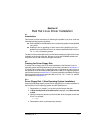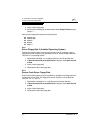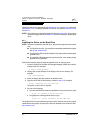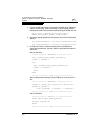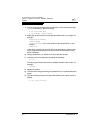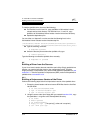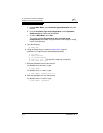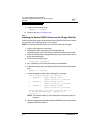
FC2354601-00 A 9-9
9 – Red Hat Linux Driver Installation
Install or Update the Driver (Installed Operating
System)
9.4.2.2
Building a Ramdisk Image to Load the Driver Automatically
You can load the qla2x00 driver at boot time using a ramdisk image. For more
information, refer to the Red Hat installation guide.
Perform the following steps to load the qla2x00 driver using a ramdisk image:
1. For Red Hat Linux 6.2, add the following line to the file /etc/conf.modules.
For Red Hat Linux 7.0, 7.1, and 7.2, add the following line to the file
/etc/modules.conf. For example:
alias scsi_hostadapter qla2x00
NOTE: If there are other SCSI HBAs installed on your system and the
scsi_hostadapter alias is used, define a different alias (for example,
scsi_hostadaptern (where n is a number from 1–9)).
2. Copy the object file to:
/lib/modules/<kernel release version>/scsi (Red Hat Linux 6.2 or 7.0)
/lib/modules/<kernel release version>/drivers/scsi (Red Hat Linux 7.1 and
7.2)
3. Build a new ramdisk image that contains the qla2x00.o object file.
For a single-processor system, type the following commands, where
x.x.xx–x.x is the Red Hat Linux version number:
/sbin/mkinitrd /boot/newinitrd-image x.x.xx-x.x
For a multiprocessor system, type the following commands, where
x.x.xx–x.x is the Red Hat Linux version number:
/sbin/mkinitrd /boot/newinitrd-image x.x.xx-x.xsmp
4. Modify the /etc/lilo.conf file to load the new ramdisk image. In the following
examples, .x.xx–x.x is the Red Hat Linux version number.
For a single-processor system, change the following line from:
initrd=/boot/initrd-x.x.xx-x.x.img
to:
initrd=/boot/initrd-image
For a multiprocessor system, change the following line from:
initrd=/boot/initrd-x.x.xx-x.x.smp.img
to:
initrd=/boot/initrd-image



